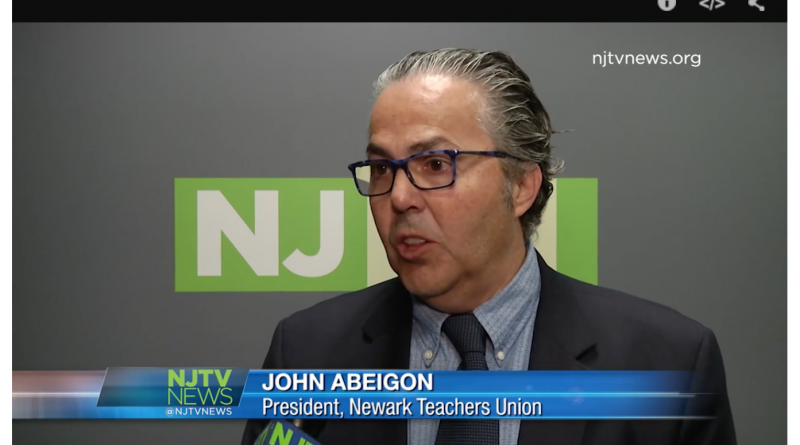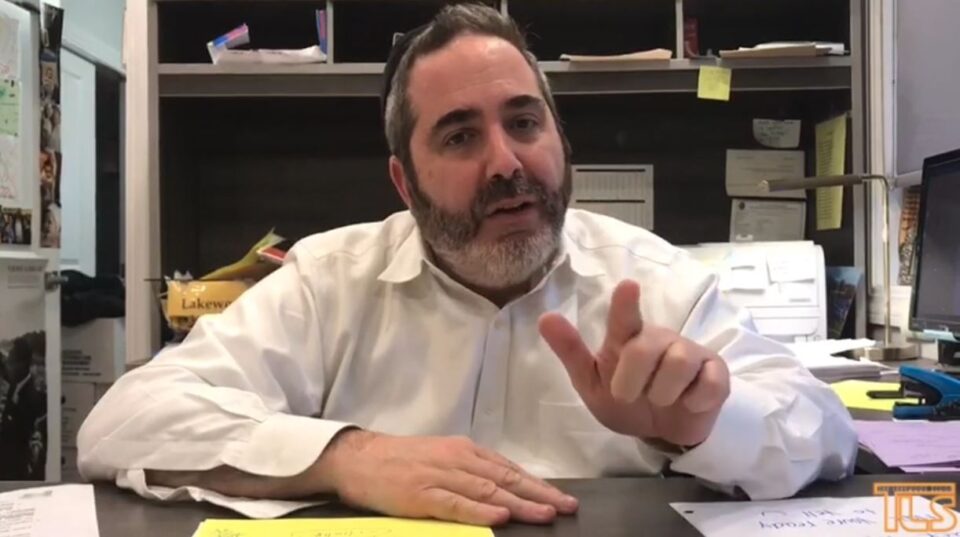“First Vaccinations, Now it’s the PARCC Test”
February 23, 2015Hope Springs Eternal,
February 24, 2015Just How “Grassroots” is the Opt-Out Movement in New Jersey?
Judging by NJEA and Save Our Schools-NJ websites and lobbying efforts, New Jersey parents are opting-out their children from PARCC tests in droves. Here’s NJEA spokesman Steve Wollner, quoted by Bob Braun:
Nothing less than the future of public education is at stake here,’’ said one top NJEA staffer, Steven Wollmer, its communications director. He made the remarks after a press conference at which the union announced steps it would take with Save Our Schools-New Jersey (SOS-NJ), a parents’ group, to pass legislation [A4165] limiting the impact of testing. Wollmer called over-reliance on testing “child abuse” and said he hoped anger about the exams would set off a “full-blown rebellion, ” particularly among parents.
And, from SOS-NJ’s facebook page,
150 districts have PARCC refusal policies that accommodate parent/student wishes with an alternative venue or activities, and that number is continuing to grow!
The list now includes 51 districts with links confirming their humane refusal policies.
Please help make it possible for the entire state to refuse the PARCC test by contacting your Assembly members via this alert: Support A4165: Protect Right to Refuse High-Stakes Standardized Tests.
Let’s get real. Parents of children who are privileged enough to live in high-achieving districts don’t really care about standardized tests, at least until their kids are taking SAT’s and AP’s. After all, the grade-level assessments that were first administered on Friday (no casualties reported) have no impact on kids. State aid to wealthy districts is de minimus so there’s nothing on the line as far as supplemental funding. These parents have no concerns about district dysfunction or the special needs of impoverished children or the very real danger of overlooking pockets of failure among aggregated averages. Their schools are great! Who needs PARCC to tell them that?
Yet NJEA and SOS-NJ insist that the opt-out inclination among parents is “grassroots,” i.e., common among all socio-economic groups, as widespread in Plainfield (an Abbott district) as it is in Princeton.
Today in the Wall Street Journal, reporter Leslie Brody gives us some data:
Spot checks with suburban school-district leaders found relatively low numbers of parents alerting them they were opting out so far. In Montclair, high school officials reported getting five or 10 opt-out notes daily since Feb. 9, when the school board told parents that they must notify principals in writing if they plan to refuse testing. About 70 parents of students in all grades in Ridgewood, 64 in Wayne, 75 in Millburn and 75 in Princeton had also done so. In urban Paterson and Camden, officials said it didn’t appear to be an issue for parents.
For those of you unfamiliar with N.J.’s zip-code school enrollment patterns, Montclair, Ridgewood, Millburn, and Princeton (the home base of S0S-NJ) are some of the state’s wealthiest districts. According to the state’s District Factor Groups rating, which assigns each district a socio-economic level of A (the poorest) to J (the richest), these four schools are either “I’s” or “J’s.” Wayne has a DFG of GH, not as wealthy as Millburn or Princeton but relatively well-off.
Paterson and Camden, on the other hand, are “A’s,” among N.J.’s most impoverished districts. So much for “grassroots,” unless we’re talking manicured suburban lawns.
According to Brody’s spot check, parents who opt-out children from standardized tests are clustered in N.J. richest districts. It’s the whole vaccine:standardized test analogy. We’ll spare our children from potential trauma, say wealthy families, no matter how insignificant or unproven that trauma, and put those “other” vulnerable children at risk by undermining the state’s ability to collect data on student growth throughout the state..
After all, wealthy families have their own “herd immunity,” safe in their enclaves of high-achieving schools. Poor families, if NJEA, SOS-NJ, and supporters of the opt-out bill before the Assembly today have their way, will be shunted aside and exposed to a state school system that would be incapable of quantifying need and providing treatment.
Brody quotes N.J. Education Commissioner David Hespe: “The NJEA is spending a lot of money to try to get students to opt out,” Mr. Hespe said in an interview. “We are worried.”
Mr. Hespe said parents who balk at the tests will miss out on data showing whether their children are on grade level and how they compare to peers. And he said that if many students in a school don’t participate, its results could be distorted in ways that hide achievement gaps among children from different genders, races and financial backgrounds—and make it harder to shape instruction to help those who struggle.
“The opt-out movement is a suburban phenomenon that’s going to be counterproductive to helping disadvantaged kids,” he said. “In order to identify gaps between kids, in schools and in classrooms, you need this comparative information.”
Let’s hope that the N.J. Assembly is paying attention to all of New Jersey schoolchildren, and not just those whose parents can afford to live in Princeton, Millburn, Ridgewood, and Montclair.





9 Comments
This comment has been removed by the author.
Wow. Jumping to Conclusion or Sweeping Generalization fallacy much?
Not only do I live in a “top performing district” as they say (a top ten school, in fact), our BOE superintendent announced at a meeting that they *are* in fact concerned we will indeed fall below the 95% threshold.
Of course, that's a non-issue.
Plenty of parents have spoken up, and more continue to do so every day.
I'd say that counts for something.
Your vaccine:standardized test analogy doesn't hold up at all. Herd immunity? Special needs kids, kids with anxiety, etc. come from suburban districts and urban districts alike. Also, we have no evidence that this test even measures what it sets out to measure. Therefore, there is no way that forcing all students (especially special needs students) to take a test will help or hurt another population of students. If anything, your watery arguments may be misleading parents In these urban districts to whom, you point out, need more information about refusing. Thank you.
Ms. Waters Even the ALEC bills acknowledge this testing regime has failed. Resolution on Title 1 of the Elementary and Secondary Education Act
October 11, 2013
Resolution on Title 1 of the Elementary and Secondary Education Act Model Policy Since 1965, the Title 1 programs of the federal Elementary & Secondary Education Act (ESEA) has failed to boost the academic achievement of the students the program purports to serve, WHEREAS, the federal involvement in education ties the hands of the states with mandates, paperwork, and bureaucracy, WHEREAS, Congress does not allow states to consolidate the funds in the Title 1 programs of ESEA program to help existing state reforms and in some cases hinders state reform, Now therefore be it resolved that: the {legislative body} of […] http://www.alec.org/legislation-tags/education-congressional-resolutions/
CS, as a parent of a child with multiple disabilities,I agree that testing special needs kids is far more complicated.
Bob, you're citing a bill that's aimed at Tea Party statists. Is that really where you want to go?
This movement is “Grassroots” baby, yes, it's grassroots! And we in the grassroots movement are LOVING the ability to help each other out and bring the PARCC down. Oh yes, it's going DOWN. Care to know why? Simply put, the PARCC is developmentally inappropriate and purposely ambiguous to cause our students to fail so that money can be made on remediation materials, where none is needed. Oh yeah and being graded on a timed typing test does not help either.
Ms. Waters these ALEC bills are the same bills that created charter school laws. Are you now saying you don't trust the ALEC bills? http://www.alec.org/legislation-tags/charter-schools/
harter School Growth with Quality Act
March 15, 2013
Charter School Growth with Quality Act Summary The Charter School Growth with Quality Act would expand quality public education opportunities for all children by establishing a state public charter school commission to serve as an independent statewide charter authorizer. Model Legislation Section 1. {Legislative findings} (A) The Legislature finds that: (1) alternative designs of public schooling are needed to address the challenges of ensuring that more students graduate with the necessary skills and knowledge to succeed in life; and (2) current shortcomings and future global economy and information age require new models of delivering education at the individual student level, […]
The Next Generation Charter Schools Act
March 15, 2013
The Next Generation Charter Schools Act Summary The State of [state] recognizes establishment of charter schools as necessary to improving the opportunities of all families to choose the public school that meets the needs of their children, and believes that charter schools serve a distinct purpose in supporting innovations and best practices that can be adopted among all public schools. Further, the State of [state] recognizes that there must be a variety of public institutions that can authorize the establishment of charter schools as defined by law, and recognizes that independent but publicly accountable multiple authorizing authorities, such as independent […]
Just in case you werent aware of the links between Alec bills and NJ here's a small sampling:
http://www.nj.com/news/index.ssf/2012/04/alec_model_bills_used_in_nj_la.html
Members such as Webber (R-Morris) and Sen. Steven Oroho (R-Sussex) have their choice of hundreds of model bills from the group’s online library, which is open only to those who belong to ALEC. They can also seek guidance from experts on ALEC’s staff.
Christie’s former chief of staff, Richard Bagger, who had a leading role developing the administration’s policies, was a member of ALEC’s board of directors in 2002 and 2004 on behalf of Pfizer, where he was senior vice president of government affairs.
The council says nearly 2,000 state legislators from all over the country are members, which would be about 27 percent of the 7,384 state lawmakers nationwide.
The rest of its members are representatives of nearly 300 of the biggest U.S. corporations, including Johnson & Johnson, Verizon, AT&T, Wal-Mart, Koch Industries, UPS, Exxon and Coca-Cola, as well as conservative think tanks and advocacy groups such as the National Rifle Association. Legislators and corporate officials gather at high-end resort towns several times a year to draft and update model bills.
ALEC documents show lawmakers pay $50 a year to be members. Corporations pay at least $7,000 and up to $25,000 to join — more if they want to help draft model bills as part of one of nine policymaking task forces. At least 98 percent of ALEC’s $7 million budget comes from corporations, according to its latest IRS filing. As a nonprofit 501(c)(3), ALEC is exempt from paying taxes.
http://www.danmasi.com/waters-graded.pdf